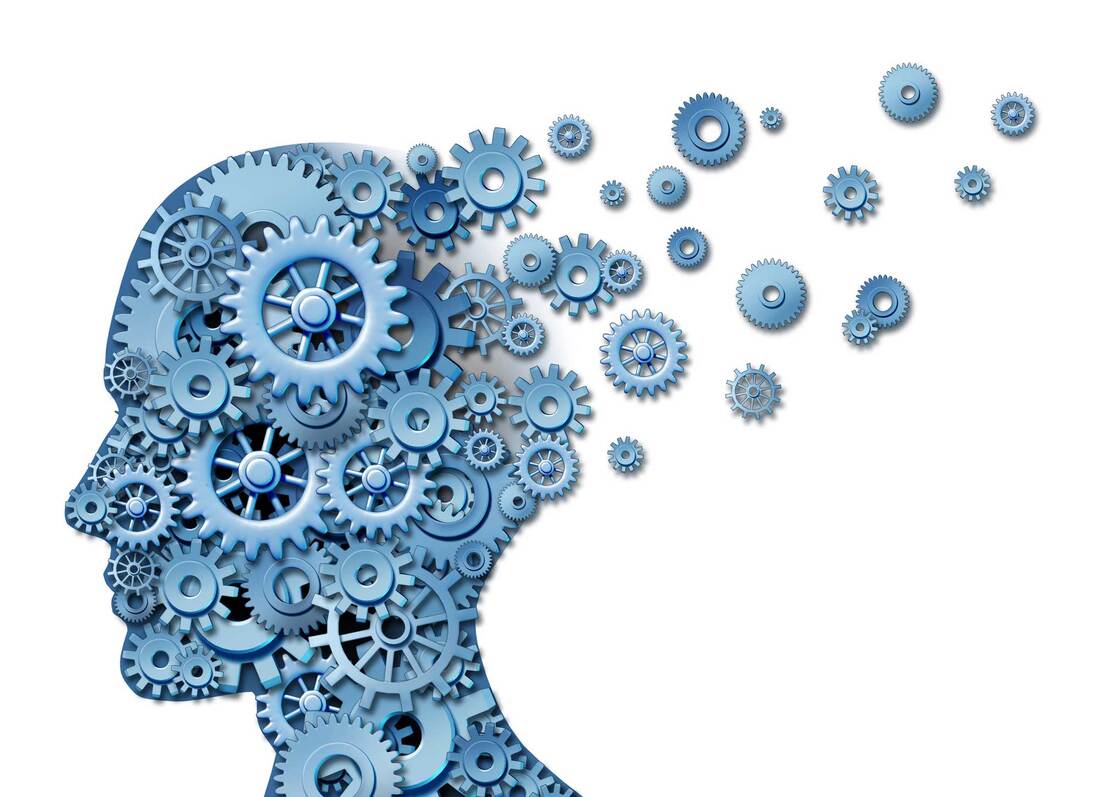|
We’ve all experienced the “grass is greener” syndrome. Well, I don’t know if everyone experiences the feeling—some people might think their situation is the best in the entire universe. Basically, the expression refers to the idea that there is something better that we are missing. I experience this often. When I go fishing, for example. I always think carefully about where I want to fish, weighing the options in my mind. Then, when I get to the spot I decided on, I start to wonder if I made the wrong choice: “I am at location A, but would I be catching more fish if I’d gone to location B? Yes, I’m pretty sure I would. Why-oh-why did I chose location A? I’m such an idiot!”
This is a minor example, with little to no consequences. Unfortunately, though, some people have “grass is greener” syndrome with regards to really important aspects of their lives. To solve this mystery, first we should figure out where the expression (an idiom, actually) came from. I used to think it came from the fact that cows and sheep are often seen stretching their necks through the fence to eat the grass on the other side. As it turns out, though, it probably came from a really old Latin proverb that was translated into English in 1545: The corne in an other mans ground semeth euer more fertyll and plentifull then doth oure own. If you haven’t guessed, the more modern translation is: The corn in another man’s ground seems ever more fertile and plentiful than our own. Hmm… maybe we should consider why grass is green in the first place. That way we can get some biology into this mystery. Basically, the color has to do with the pigment called chlorophyll. Most plants have little organelles called chloroplasts inside their cells. These chloroplasts contain molecules of chlorophyll. Chlorophyll molecules absorb certain wavelengths of light, especially red and blue. Green light, on the other hand, is reflected. That reflected green light hits the retinas of your eyes when you look at grass, which is why you perceive grass to be green in color. Now let's get to the question of why people (me included) sometimes have a tendency to believe the grass is greener on the other side. First, it's worth noting that sometimes the grass really is greener on the other side. For example, if someone is in a job they hate, or in an abusive relationship. In cases like that, the “grass is greener” syndrome is actually a healthy thing. However, why is the syndrome so common when we actually have no evidence that the alternative situation is any better than the situation we are in? I don’t really have any evidence that the other fishing spot would be any better on this particular day. So, why do I experience the “grass is greener” syndrome? Psychologists say it is based on fantasy and fear. The fear is easy to explain. Many people have a fear of boredom, or wasting time, or being unproductive, or missing out. And on the more serious side, a fear of being trapped by commitment, fear of losing one’s individuality, or fear of oppression. Where does the fantasy part come in? We tend to convince ourselves that, if we go to the greener side, we will get exactly what we want. That’s a fantasy because we have no evidence that we will get anything better than what we currently have. There is a new variation of the phrase, and I have decided to embrace it: “the grass is greener where you water it.” In other words, good situations come from the energy you put into them, not from dreaming about them.
0 Comments
The other day I was testing out a new camera and this beautiful red-shouldered hawk happened to fly over me and land in a nearby tree, offering an opportunity for some photos. The hawk was studying the ground intently, probably watching some movement it had noticed, hoping it was a chipmunk or a vole. Besides rodents, these hawks eat snakes, toads, and crayfish. They sometimes eat birds, and we have seen them hanging around our bird feeders, waiting for a snack. Red-shouldered hawks are strictly forest hawks, spending most of their time hunting among the trees. They can be quite territorial. In fact, they will attack intruding crows and will lock talons with other hawks that come into their territory. They've even been known to attack humans they think are getting too close. Photo credit: - Red-shouldered Hawk - Stan C. Smith We need some basic information first. How are memories stored in your brain? As it turns out, a memory is actually a bunch of chemical changes that take place at the connection points (synapses) between the neurons in your brain. Your brain has a lot of synapses, something like 125 trillion (that’s trillion with a T… this is as many synapses as the number of stars in 1,500 Milky Way galaxies). Each memory, depending on its complexity, is stored by slightly changing the chemistry of thousands or even millions of these connections. And… each synapse could contain tiny portions of thousands of different memories.
With memories that aren’t considered important, those slight chemical changes don’t last long, and the synapses go back to the way they were before. That’s called short-term memory. However, if the memory is more important for some reason (perhaps an emotional event), those slight chemical changes become permanent. Those memories remain accessible when needed. That’s called long-term memory. My question is, what happens when those memories are no longer accessible? Are the chemical changes still there? If so, is there a way to access a memory even after it has been forgotten? As you can imagine, studying these chemical changes in humans is kind of difficult—for ethical reasons. You can’t ask someone to volunteer to have their brain exposed in order to look closely at these processes (and you sure as heck can’t do it without asking them). However, ethical research has been done with human patients while they were in the process of having brain surgery for other reasons. In one of these studies, a specific neuron in a patient’s brain consistently responded when the patient saw a picture of Jennifer Aniston by herself, but it would not respond when the picture showed Aniston with Brad Pitt. Maybe the patient had watched numerous episodes of Friends but did not know that Aniston and Pitt used to be married. But, I digress… How are these important memories eventually forgotten? It’s important to understand that the brain is changing constantly. The chemistries of the synapses are changing with every new memory. As these new memories are made, older chemical changes start to degrade. All kinds of complicated things happen. Similar memories start to merge into one. Sets of memories get isolated from newer memories and stay isolated until something happens in your life that triggers your ability to access them again. For example, you hear a song you haven’t heard in a long time. Tastes, smells, voices, certain words… these are all things that can reconnect those isolated memories to the present. So, can long-forgotten memories somehow be unearthed, like digging up an archeological site? Kind of. For some memories, the chemical changes at synapses become too degraded to ever be accessed again. However, for those chemical changes that are not gone forever, psychologists have figured out ways to present certain types of sensory stimuli that systematically rebuild some of those old connections to long-isolated memories. I like to think of it as mining the mind. Life's Great Mysteries - If someone is blind from birth, what do they see in their dreams?3/15/2024 Dreams are visual. In fact, my dreams are almost entirely visual—at least the parts I remember. If I were to rank the sensory aspects of my dreams, the top spot would be the visuals, followed perhaps by certain feelings, such as frustration (those pesky dreams where I have no lesson planned, but I have to teach a class right now) or euphoria (being able to fly). And, to be honest, those feelings often result from the visual aspects of the dreams. Occasionally, I remember sounds. For example, long ago I had an amazing dream about aliens invading Earth (they turned out to be friendly). Numerous ships of all sizes and shapes were zipping around or floating ominously in place. At one point, a dragonfly-sized robotic thingy flew up to me and hovered in front of my face, apparently checking me out, then it flew off. To this day I remember the chittering sound of its mechanical wings. But that’s rare—usually I don’t remember many of the voices or other sounds from my dreams. In my flying dreams, I remember feeling the cool night air as I fly over the trees. However, such touch sensations are few and far between. And, I don’t have any memories at all of smells in my dreams. So, for me, my dreams are mostly visual. Which is why this question is such a mystery to me. What do blind people experience in their dreams?
According to the Sleep Foundation, it depends on how long the person has been blind. Not surprisingly, those who became blind later in life do indeed experience visual dreams. After all, they've had visual experiences, which their minds can recreate in dreams. However, those with congenital blindness (blind from birth) are more difficult to study, and researchers disagree on the answer. Why is it difficult to study their dreams? Think about it… they have no experiences with vision, therefore they have no experiences from which to describe visual dreams. This makes it difficult for a researcher to determine if the subjects’ verbal descriptions really describe visual scenes. Interestingly, researchers have found that many congenitally-blind people are able to draw pictures of what they “saw” in their dreams, in the same way that sighted people can. To me, this is convincing evidence that congenitally-blind people can have visual dreams, even though they have never seen anything in their entire life. Most researchers, however, believe blind people have far fewer visions in their dreams than sighted people. And, as when they are awake, their minds make up for the lack of visual experiences by increasing other sensory experiences, such as sound, taste, touch, and smell. |
Stan's Cogitations
Everyone needs a creative outlet. That's why I write. Archives
July 2024
|





 RSS Feed
RSS Feed